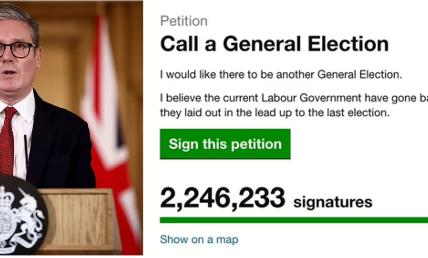The Prime Minister, confirming he wants closer ties with Brussels, revealed families could soon use EU e-gates.

The e-gates announcement was one of the key facets of the deal (Image: Getty)
Sir Keir Starmer’s hopes of millions of Britons avoiding lengthy queues at EU airports this summer have been thrown into doubt. Confirming he wants closer ties with Brussels, the Prime Minister revealed families could soon use EU e-gates.
Sir Keir added that there is “no inhibition now on this, so I want to see it done quickly”. But the document signed by London and Brussels says both the UK and the EU agree there will be “no legal barriers to e-gate use for British nationals travelling to and from EU states after the introduction of the EU EES”, The Times reported. The EU Entry/Exit Scheme (EES) is not due to come into force until October at the earliest.

Families could face long airport queues this Summer (Image: MEN Media)
Nick Thomas-Symonds, the minister responsible for Labour’s EU reset, has written to Greece, Germany and the Netherlands urging them to allow immediate access amid fears families will still face lengthy queues this summer.
EES will be an automated IT system for registering travellers from non-EU countries, including the UK, each time they cross a border into or out of the EU.
When it comes into force in October, travellers will need to scan their passports at an automated self-service kiosk prior to crossing the border.
This will replace the current manual stamping of passports for visitors to Europe’s borderless Schengen area who are not nationals of EU or Schengen countries.
The system will register the person’s name, type of travel document, biometric data (such as fingerprints) and the date and place of entry and exit.
It is likely that British travellers will have their fingerprints and facial images taken the first time they cross a border into the EU, once the new system is in operation.
There are fears this will cause huge queues at EU airports.
A European Commission spokesman said the introduction of EES “will open the possibility to use e-gates for all non-EU citizens. This will contribute to fluidity at borders for entry and exit”.
Luke Petherbridge, the director of public affairs at Abta, the travel association, said: “We believe there are three different scenarios of how EU countries allow UK citizens to use e-gates.
“The first being no access at all, the second being occasional access might be granted at the border official’s discretion and the third will be some who allow it all of the time. In terms of the second and third scenario, you’ll still need to have your passport stamped as that’s what monitors how long you’ve been in the country.”
A European Commission spokesman said the introduction of EES “will open the possibility to use e-gates for all non-EU citizens. This will contribute to fluidity at borders for entry and exit”.


